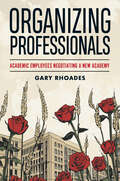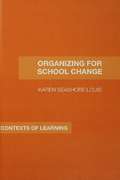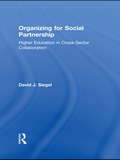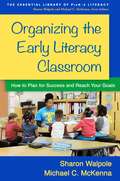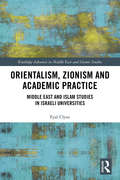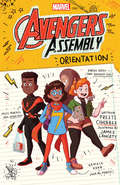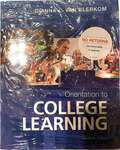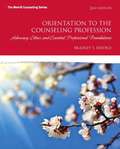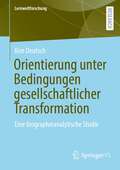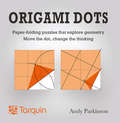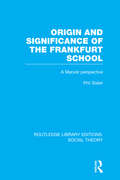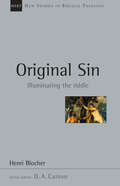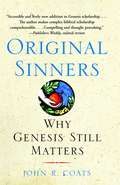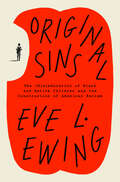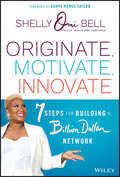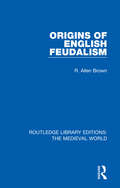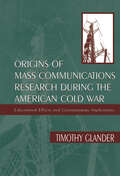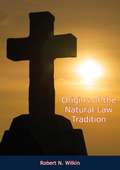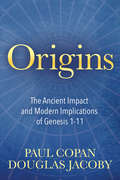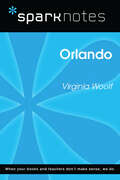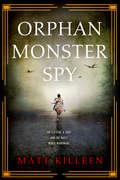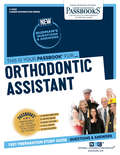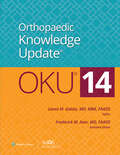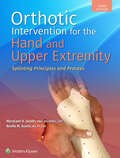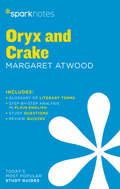- Table View
- List View
Organizing Professionals: Academic Employees Negotiating a New Academy
by Gary RhoadesAmidst unprecedented levels of union organizing in higher education, Gary Rhoades combines the perspectives of a scholar and labor movement activist and leader to provide a comprehensive analysis of organizing campaigns and collective bargaining agreements for faculty (contingent and tenure-track), graduate students, and postdoc employees. Academic employees are organizing and negotiating for respect for workers, their work, and the public value of higher education. Rhoades analyzes how academic employees are shifting the imbalance of power between labor and management, reducing the internal professional stratification between segments of the academic workforce, and intersecting workplace issues with broader issues of equality, public value, and social justice, and in the process organizing and negotiating for a new, more progressive academy.
Organizing for School Change (Contexts of Learning)
by Karen Seashore LouisImproving education is a key priority for governments around the world. While many suggestions on how best to achieve this are currently under debate, years of academic research have already revealed more about how to encourage change than is sometimes assumed. This volume brings together for the first time some of the most significant work of Karen Seashore Louis, one of the foremost thinkers and researchers in the field. Organizing for School Change presents a unique variety of research-based results from studies conducted over the past twenty-five years. What emerges is not an idealistic plan, but a realistic picture of what needs to be done if schools are to be made better. Drawing on a wide and comprehensive list of sources, the ideas brought together in this collection will prove invaluable and insightful reading, stimulating both newcomers and veterans of the field to consider educational research in new ways.
Organizing for Social Partnership: Higher Education in Cross-Sector Collaboration
by David J. SiegelThe most complex social challenges – such as post-secondary access and success for under-represented students, diversification of the workforce, poverty, environmental degradation, and global health – exceed the problem-solving capacity of single organizations or societal sectors. Organizing for Social Partnership provides colleges and universities, corporations, government agencies, nonprofits, and other organizations with a model for how to effectively address these and other pressing social issues through strong, effective collaboration. This valuable book is relevant for graduate students enrolled in courses on postsecondary organization and governance, equity and diversity, access, administration, and contemporary issues. Organizing for Social Partnership will also spark dialogue among higher education leaders and their counterparts in business, government, and the social sector.
Organizing the Early Literacy Classroom: How to Plan for Success and Reach Your Goals
by Sharon Walpole Michael C. MckennaFilled with clear explanations and doable strategies, this book helps PreK-2 teachers juggle the demands of planning effective instruction and creating a literacy-rich classroom environment. Realistic vignettes illustrate how to set goals, develop standards-based curricula and assessments, establish routines, and organize the classroom space and the daily schedule. The authors demonstrate the nuts and bolts of building an exemplary classroom library and professional teaching library, collaborating as a team with other teachers and specialists, preparing report cards, and communicating with families. Several reproducible forms can be downloaded and printed in a convenient 8 1/2" x 11" size.
Orientalism, Zionism and Academic Practice: Middle East and Islam Studies in Israeli Universities (Routledge Advances in Middle East and Islamic Studies)
by Eyal ClyneOrientalism, Zionism and Academic Practice explores the field of Israeli Middle East and Islamic Studies (MEIS) sociologically and politically, as a window onto the relationship between Orientalism, Zionism and academia. The book draws special attention to neoliberal discourse and praxis in everyday higher education, the interests of scholars, and the political form that commercialisation takes in specific disciplinary and geopolitical conditions by deconstructing structural and historical presuppositions and effective ideologies that overdetermine this junction of academia, orientalism and Zionism. The multi-layered study draws on various scholarly traditions and offers new evidence for, and insights in, historical and cultural-discursive discussions. It highlights paradigmatic gaps in reading Saidian orientalism, re-evaluates the origins and evolution of the local field, contributes to the study of everyday academic culture in the social sciences and humanities (SSH), and unveils the presupposed and the unsaid of the general and the specific field, exploring the intersection of an orientalist expertise, in a settler-colonial society, and everyday academic capitalism. The expertise of this sociological and discursive study make it an invaluable resource for academics and students interested in Israel and Middle East studies, Higher Education and the Sociology of Academia.
Orientation (Avengers Assembly)
by Preeti ChhibberA diverse cast of characters -- Kamala Khan (Ms. Marvel), Miles Morales (Spider-Man), and Doreen Green (Squirrel Girl) -- team up in their first-ever middle-grade series told through comics, in-world artifacts, and more!Kamala Khan was an average middle school kid. That is, until a cloud called a Terrigen Mist swept through the New Jersey waterfront and activated her super powers! After taking on the persona of Ms. Marvel, she's been fighting crime in Jersey City, and has caught the eye of some pretty well-established super heroes. But that's not always a good thing...After Kamala is caught by news cameras taking on a super villain -- and accidentally destroying a building along the way -- she gets a letter from Captain Marvel herself! It's great that she's fighting crime and sticking up for people, but maybe a regular school isn't the best place to learn how to do that. If she wants to continue as Ms. Marvel, she's going to need to take on some new extracurricular activities -- mainly, training with other young super heroes alongside the Avengers!Now Kamala is the new kid at the Avengers Institute. Her classmates are all kids like her, they have special powers, but most of them have gotten into some trouble or drawn attention to themselves. The big news at the Avengers Institute this year? An academic decathlon in which students will group up into teams and compete against each other in super heroics. Kamala and her friends Miles and Doreen will have to go up against a team led by some kids who fight less than fair -- and have some trouble with the concept of "fighting for good" -- in this funny, action-packed look at some ordinary middle school kids who just happen to have some extraordinary powers.
Orientation to College Learning
by Dianna L. Van BlerkomORIENTATION TO COLLEGE LEARNING, Seventh Edition takes students on a specific path to help them to be motivated, and to surround themselves with the resources they need to set goals and celebrate accomplishments. The text emphasizes well-defined goals, regular class attendance, good work habits, sufficient background knowledge, appropriate study strategies, time management, and motivation as the key factors that contribute to college success. It strengthens the connection between motivation and the strategies that are presented, so that students continue to increase their motivation throughout the course and enhance their commitment to being a successful student.
Orientation to the Counseling Profession: Advocacy, Ethics, and Essential Professional Foundations (Second Edition)
by Bradley T. ErfordDesigned to orient counselors in training to the profession of counseling--regardless of their area of specialty--this comprehensive, current, and innovative guide covers the major tenets of the counseling profession including advocacy and multicultural counseling; licensure; professional associations; ethical/legal issues; consultation; supervision; outcomes research; and the counseling process, with diverse applications across the lifespan, settings, and specialties. Orientation to the Counseling Profession is precisely aligned with the 2009 CACREP standards, helping CACREP-accredited programs meet the standards and helping non-CACREP programs provide counselors in training with the most current professional training standards. Featured are unique Voices from the Field excerpts that give readers real-life, in-the-trenches practitioner perspectives.
Orientierung unter Bedingungen gesellschaftlicher Transformation: Eine biographieanalytische Studie (Lernweltforschung #40)
by Kim DeutschGerade die Zunahme von Kontingenzen und damit einhergehend die Zunahme reflexiver Entscheidungssituationen gilt als strukturelles Merkmal gegenwärtiger gesellschaftlicher Transformationsprozesse. Für die Orientierungsleistung des in der Gesellschaft lebenden Subjekts bedeutet das, dass sich diese, gleich der Zunahme an Kontingenzen und den damit einhergehenden Entscheidungssituationen, vervielfacht, das Subjekt also vermehrt mit Situationen konfrontiert wird, die Orientierung bedürfen. Den Ausgangspunkt der vorliegenden Arbeit bildete daher die Frage nach Prozessen subjektiver Orientierung in einer durch Komplexitätssteigerung geprägten Lebenswelt. Das Forschungsinteresse beschäftigte sich mit zwei Schwerpunkten: Zum einen mit Prozessen gesellschaftlicher Transformation, die das Subjekt vermehrt in Orientierungssituationen bringen und zum anderen mit Prozessen subjektiver Orientierung. Anhand einer biographieanalytischen Untersuchung und des zum Einsatz gekommenen Instrumentariums zur Rekonstruktion subjektiver Orientierungsstrategien konnten die individuellen Erfahrungen und Erlebnisschichtungen nutzbar gemacht werden, um die subjektiven Orientierungsstrategien der befragten Personen zu rekonstruieren.
Origami Dots: Folding paper to explore geometry
by Andy ParkinsonAll the challenges in this entertaining puzzle book are the same. Fold the corner of the paper to a given dot and find the folded area. A small move of the target dot can drastically change the logic needed to find the solution to the challenge. The problems become increasingly complex as the book progresses, with possible solutions involving Pythagoras' and similar triangles as well as trigonometry and algebra. However, insights learnt from earlier challenges can help with those that follow. If at any point the challenge becomes too great, the answers can always be found by measurement with a ruler and directly calculating the area. The book encourages curiosity, a "find out what you can" approach that creates interesting and varied solution strategies. The aim is that deep thinking and geometrical reasoning can come out of exploring and discussing the paper folds. The challenges are for all ages (10 years and over). Thus, for teachers the book provides a rich source of challenges that have a similar appearance, yet hide an obvious method and require students to choose how to approach the problem. Comparing solution methods when checking the answers is also useful as the solutions highlight some fascinating facts linked with these simple folds.
Origin and Significance of the Frankfurt School: A Marxist Perspective (Routledge Library Editions: Social Theory Ser.)
by Phil SlaterThe term 'Frankfurt School' is used widely, but sometimes loosely, to describe both a group of intellectuals and a specific social theory. Focusing on the formative and most radical years of the Frankfurt School, during the 1930s, this study concentrates on the Frankfurt School's most original contributions made to the work on a 'critical theory of society' by the philosophers Max Horkheimer and Herbert Marcuse, the psychologist Erich Fromm, and the aesthetician Theodor W. Adorno.Phil Slater traces the extent, and ultimate limits, of the Frankfurt School's professed relation to the Marxian critique of political economy. In considering the extent of the relation to revolutionary praxis, he discusses the socio-economic and political history of Weimar Germany in its descent into fascism, and considers the work of such people as Karl Korsch, Wilhelm Reich, Walter Benjamin and Bertolt Brecht, which directs a great deal of critical light on the Frankfurt School.While pinpointing the ultimate limitations of the Frankfurt School's frame of reference, Phil Slater also looks at the role their work played (largely against their wishes) in the emergence of the student anti-authoritarian movement in the 1960s. He shows that, in particular, the analysis of psychic and cultural manipulation was central to the young rebels' theoretical armour, but that even here, the lack of economic class analysis seriously restricts the critical edge of the Frankfurt School's theory. His conclusion is that the only way forward is to rescue the most radical roots of the Frankfurt School's work, and to recast these in the context of a practical theory of economic and political emancipation.
Original Sin: Illuminating the Riddle (New Studies in Biblical Theology #Volume 5)
by Henri BlocherWe live in a world shot through with evil. The twentieth century has witnessed suffering and human cruelty on a scale never before imagined. Yet, paradoxically, in recent years the doctrine of original sin has suffered neglect and ridicule. In this philosophically sophisticated treatment of the biblical evidence for original sin, Henri Blocher offers a robust response. Interacting with the best theological thinking on the subject, this New Studies in Biblical Theology volume shows that while the nature of original sin is a mystery—even a riddle—only belief in it makes sense of evil and wrongdoing. After a general survey of the biblical evidence, Blocher moves on to discuss the two key texts. First, he considers the relation of the Eden story of Genesis 2 and 3 to modern scientific, literary and theological thinking. Then, he offers a new and groundbreaking interpretation of Romans 5, where Paul discusses Christ and Adam. From this exegetical foundation, he goes on to show how the doctrine of original sin makes sense of the paradoxes of human existence. In the final chapter, he discusses the intellectual difficulties that some feel remain with the doctrine itself. Addressing key issues in biblical theology, the works comprising New Studies in Biblical Theology are creative attempts to help Christians better understand their Bibles. The NSBT series is edited by D. A. Carson, aiming to simultaneously instruct and to edify, to interact with current scholarship and to point the way ahead
Original Sinners
by John R CoatsIn this vivid, original interpretation of Genesis, former Episcopal priest John R. Coats takes readers on a journey through the ancient text, inviting them to see its characters in a new light, not as religious icons, but as people whose day-to-day concerns, triumphs, and failures are like our own. In Coats's telling, the relationships of Cain and Abel, Jacob and Esau, Rachel and Leah, and Joseph and his brothers take on stunning contemporary relevance as these characters find themselves confronted with extraordinary situations and circumstances that they'd neither asked for nor had anything to say about. Using stories from his life as well as the lives of people he's known, Coats creates a rubric you can use to examine your own life and to discover aspects of yourself in the characters whose lives unfold in these primordial stories. How has Eve's story shaped yours? Is your life reflected in Jacob's evolution to wisdom? In Joseph's youthful arrogance? Coats explores the strengths and weaknesses of the men and women in Genesis, pulling back the wrappings that have hidden their humanity to reveal the vibrant drama of these foundational narratives. "Different clothing, yes, and language, and customs, yet at the human level," he writes, "they were just as greedy and generous as we are, as gullible and crafty, as moronic and brilliant, as cowardly and brave. They are us, their stories, our stories, mirrors in which to see our best and worst selves."
Original Sins: The (Mis)education of Black and Native Children and the Construction of American Racism
by Eve L. Ewing“A fascinating and eye-opening look at how American schools have helped build and reinforce an infrastructure of racial inequality . . . a must-read for every American parent and educator.”—Esquire (Most Anticipated Books of 2025) <p> “Though the argument of this book is bleak, it illuminates a path for a more just future that is nothing short of dazzling.”—Oprah Daily (Most Anticipated Books of 2025) <p> “This book will transform the way you see this country.”—Michelle Alexander, author of The New Jim Crow. <p> If all children could just get an education, the logic goes, they would have the same opportunities later in life. But this historical tour de force makes it clear that the opposite is true: The U.S. school system has played an instrumental role in creating and upholding racial hierarchies, preparing children to expect unequal treatment throughout their lives. <p> In Original Sins, Ewing demonstrates that our schools were designed to propagate the idea of white intellectual superiority, to “civilize” Native students and to prepare Black students for menial labor. Education was not an afterthought for the Founding Fathers; it was envisioned by Thomas Jefferson as an institution that would fortify the country’s racial hierarchy. Ewing argues that these dynamics persist in a curriculum that continues to minimize the horrors of American history. The most insidious aspects of this system fall below the radar in the forms of standardized testing, academic tracking, disciplinary policies, and uneven access to resources. By demonstrating that it’s in the DNA of American schools to serve as an effective and underacknowledged mechanism maintaining inequality in this country today, Ewing makes the case that we need a profound reevaluation of what schools are supposed to do, and for whom. This book will change the way people understand the place we send our children for eight hours a day. <b>New York Times Bestseller</b>
Originate, Motivate, Innovate: 7 Steps for Building a Billion Dollar Network
by Shelly Omilade BellSupercharge your business or career by staying true to your authentic self In Originate, Motivate, Innovate: 7 Steps to Building a Billion Dollar Network, accomplished entrepreneur Shelly Omilâdé Bell and author Sheena C. Howard deliver an honest and engaging discussion of how to think differently about getting your business funded as a female entrepreneur of color. In the book, you’ll find the mindsets, tools, tactics, and strategies you need to succeed in a venture capital environment that is largely designed by—and for—white males. You’ll learn how to apply your own unique story and background and prioritize valuable relationships to create your own pathway to a fully funded business. You’ll also discover: An acknowledgment and highlighting of those obstacles that remain in place and stand in the way of women of color in business How to break through those obstacles while doing things your own way Strategies for achieving your next goal, whether that’s building a business, creating social impact, or looking for a raise An essential and insightful resource for entrepreneurs, founders, and other business leaders of color, Originate, Motivate, Innovate is the no-nonsense, hands-on book that professional women of color have been waiting for.
Origins of English Feudalism (Routledge Library Editions: The Medieval World #7)
by R. Allen BrownOriginally published in 1973, Origins of English Feudalism suggests that English feudalism has, for a long time, been the most controversial and thereby the most highly technical aspect of English medieval history. The book contains relevant sources that will be of use to readers and will allow them to study documentary, literary and archaeological sources from the medieval period. The debate over the establishment of feudalism in pre-Conquest England involves not only the question of the presence or absence of fief, but also of knights and cavalry, castles and vassilic commendation. This book will be of interest to academics and the ease of use and careful division of sources, will be of interest to students.
Origins of Mass Communications Research During the American Cold War: Educational Effects and Contemporary Implications (Sociocultural, Political, and Historical Studies in Education)
by Timothy GlanderIn this critical examination of the beginnings of mass communications research in the United States, written from the perspective of an educational historian, Timothy Glander uses archival materials that have not been widely studied to document, contextualize, and interpret the dominant expressions of this field during the time in which it became rooted in American academic life, and tries to give articulation to the larger historical forces that gave the field its fundamental purposes. By mid-century, mass communications researchers had become recognized as experts in describing the effects of the mass media on learning and other social behavior. However, the conditions that promoted and sustained their authority as experts have not been adequately explored. This study analyzes the ideological and historical forces giving rise to, and shaping, their research. Until this study, the history of communications research has been written almost entirely from within the field of communications studies and, as a result, has tended to refrain from asking troubling foundational questions about the origins of the field or to entertain how its emergence shaped educational discourse during the post-World War II period. By examining the intersection between the individual biographies of key leaders in the communications field (Wilbur Schramm, Paul Lazarsfeld, Bernard Berelson, Hadley Cantril, Stuart Dodd, and others) and the larger historical context in which they lived and worked, this book aims to tell part of the story of how the field of communications became divorced from the field of education. The book also examines the work of significant voices on the rise of mass communications study (including C. Wright Mills, William W. Biddle, Paul Goodman, and others) who theorized about the emergence of a mass society. It concludes with a discussion of the contemporary relevance of the theory of a mass society to educational thought and practice.
Origins of the Natural Law Tradition
by Robert N. Wilkin Thomas E. Davitt John S. Marshall“CONCEPTS of a Law of Nature are as old as Western philosophy. From its inception Greek philosophy was concerned to reduce the apparent chaos and conflict of the visible world to some principle of harmony and order. The true relationship of man to the world about him was of primary concern. Philosophical solutions of these problems were found in concepts of Natural Law by which men could be brought into an ideal relationship with each other and with their environment.“In selecting the four theories of Natural Law it was thought advisable to explore only concepts of Natural Law as a manifestation of universal order, leaving for the future the subsidiary notions of Natural Rights developed in more recent centuries. The four theories have been presented in terms of their principal expositors: Cicero, with his transcending synthesis of the Aristotelian man and the Stoic cosmology; St. Thomas Aquinas, with his Hellenized adaptation of traditional Jewish-Christian theology; Richard Hooker, who provided an intellectual bridge between the neoclassical Natural Law of Bracton, of John of Salisbury, and of Anglican theology, and the rationalist Natural Rights doctrines of the seventeenth century; and Herbert Spencer, who constructed a sort of Natural Law on the basis of the natural laws of biological existence as propounded by Charles Darwin.” (From the Introduction by Arthur L. Harding)
Origins: The Ancient Impact and Modern Implications of Genesis 1-11
by Paul Copan Dr. Douglas JacobyOrigins turns much of what Christians learned in Sunday School on its head in a revealing comparison of the Genesis narrative to the competing pagan narrative of the day. Relatively few Bible readers are familiar with the world of the ancient Near East, centered in Mesopotamia and its most prominent city, Babylon. The culture, literature, religions, geography, etc. of the early biblical period dramatically influenced what was written and why and without an understanding of these elements, the purposes, meanings, and structure of the text are easily misread by modern readers and reduces the primeval narrative to a collection of Sunday School stories. Origins, while acknowledging the agendas of modern readers, remains on track in expounding on the ancient agenda. Paul Copan and Douglas Jacoby address the doubts of those who find stumbling blocks in early Genesis, facing the tough questions head on and providing biblical solution to many of the &“problem passages.&” Origins surprises and amazes all seekers, new believers, and veterans of Scripture alike as it devastates the polytheistic, pagan assumptions and proclaims the true God.
Orlando (SparkNotes Literature Guide Series)
by SparkNotesOrlando (SparkNotes Literature Guide) by Virginia Woolf Making the reading experience fun! Created by Harvard students for students everywhere, SparkNotes is a new breed of study guide: smarter, better, faster. Geared to what today's students need to know, SparkNotes provides: *Chapter-by-chapter analysis *Explanations of key themes, motifs, and symbols *A review quiz and essay topicsLively and accessible, these guides are perfect for late-night studying and writing papers
Orphan Monster Spy
by Matt Killeen<P>Her name is Sarah. She's blonde, blue-eyed, and Jewish in 1939 Germany. And her act of resistance is about to change the world. <P>After her mother is shot at a checkpoint, fifteen-year-old Sarah meets a mysterious man with an ambiguous accent, a suspiciously bare apartment, and a lockbox full of weapons. He's part of the secret resistance against the Third Reich, and he needs Sarah to hide in plain sight at a school for the daughters of top Nazi brass, posing as one of them. <P>If she can befriend the daughter of a key scientist and get invited to her house, she might be able to steal the blueprints to a bomb that could destroy the cities of Western Europe. <P>Nothing could prepare Sarah for her cutthroat schoolmates, and soon she finds herself in a battle for survival unlike any she'd ever imagined. But anyone who underestimates this innocent-seeming girl does so at their peril. <P>She may look sweet, but she's the Nazis' worst nightmare.
Orthodontic Assistant: Passbooks Study Guide (Career Examination Series)
by National Learning CorporationThe Orthodontic Assistant Passbook® prepares you for your test by allowing you to take practice exams in the subjects you need to study. It provides hundreds of questions and answers in the areas that will likely be covered on your upcoming exam, including but not limited to: dental procedures and terminology; help maintain a clean sterile environment; understand and interprate written material; patient record keeping; keeping accurate inventory records; interacting with the public; dental hygine and assisting practices; and other related areas.
Orthopaedic Knowledge Update: 14 (Orthopaedic Knowledge Update)
by Frederick M Azar Leesa M GalatzOrthopaedic Knowledge Update® 14, edited by Leesa M. Galatz, MD, MBA, FAAOS, and Frederick M. Azar, MD, FAAOS, brings you a comprehensive synthesis of the latest clinical thinking and best practices across all orthopaedic specialty areas. OKU® 14 covers developments of the last three years with revisions and updates based on new evidence, outcomes, and innovations in the recent literature, including annotated references. Keep pace with the rapidly evolving body of orthopaedic knowledge and clinical practice with OKU’s objective, balanced coverage. Backed by clinical research, informed by practical experience, and rigorously edited by thought leaders across the orthopaedic specialties, OKU®14 is your most up-to-date resource to guide your delivery of high-quality orthopaedic patient care today.
Orthotic Intervention for the Hand and Upper Extremity: Splinting Principles and Process
by MaryLynn Jacobs Noelle M. AustinCompanion to the Fabrication Process Manual for Orthotic Intervention for the Hand and Upper Extremity, now published as a separate text. This comprehensive text is the perfect resource for use in the classroom, during labs, and in clinical practice for both occupational and physical therapists. Additionally, it is a great reference for those studying to become a Certified Hand Therapist (CHT). Orthotic Intervention for the Hand and Upper Extremity: Splinting Principles and Process superbly highlights anatomical and mechanical principles; discusses associated indications and precautions; and promotes clinical reasoning skills by presenting various patient examples, therefore allowing you to confidently utilize techniques in clinical practice. This updated third edition is divided into the following sections: fundamentals necessary for successful orthotic fabrication, additional intervention methods, and orthoses for specific diagnoses and patient populations. Now with a larger format for more generous pattern appreciation, as well as incorporated and revised evidence-based content from an expanded list of contributing authors, it remains the go-to resource for every level of usage.
Oryx and Crake SparkNotes Literature Guide (SparkNotes Literature Guide Series)
by SparkNotesCreated by Harvard students for students everywhere, SparkNotes give you just what you need to succeed in school: Complete Plot Summary and AnalysisKey Facts About the WorkAnalysis of Major CharactersThemes, Motifs, and SymbolsExplanation of Important QuotationsAuthor&’s Historical ContextSuggested Essay Topics25-Question Review QuizOryx and Crake features explanations of key themes, motifs, and symbols including: the danger of scientific advancement; voices; memory; the dominance of corporate power; blood and roses; Alex the parrot. It also includes detailed analysis of these important characters: Snowman; Oryx; Crake.
